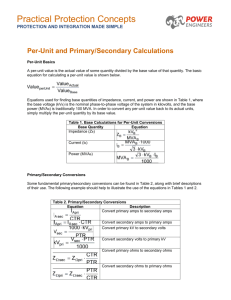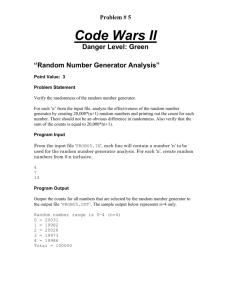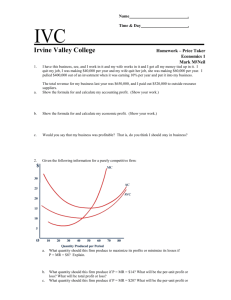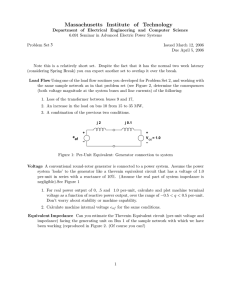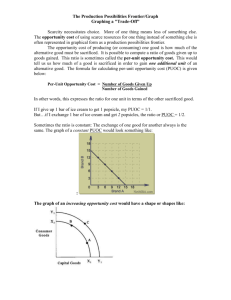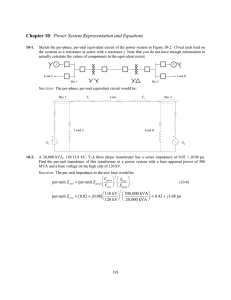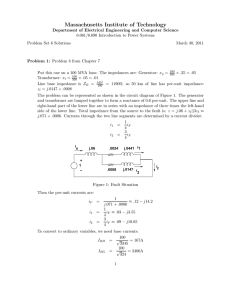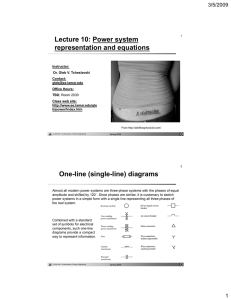Massachusetts Institute of Technology
advertisement
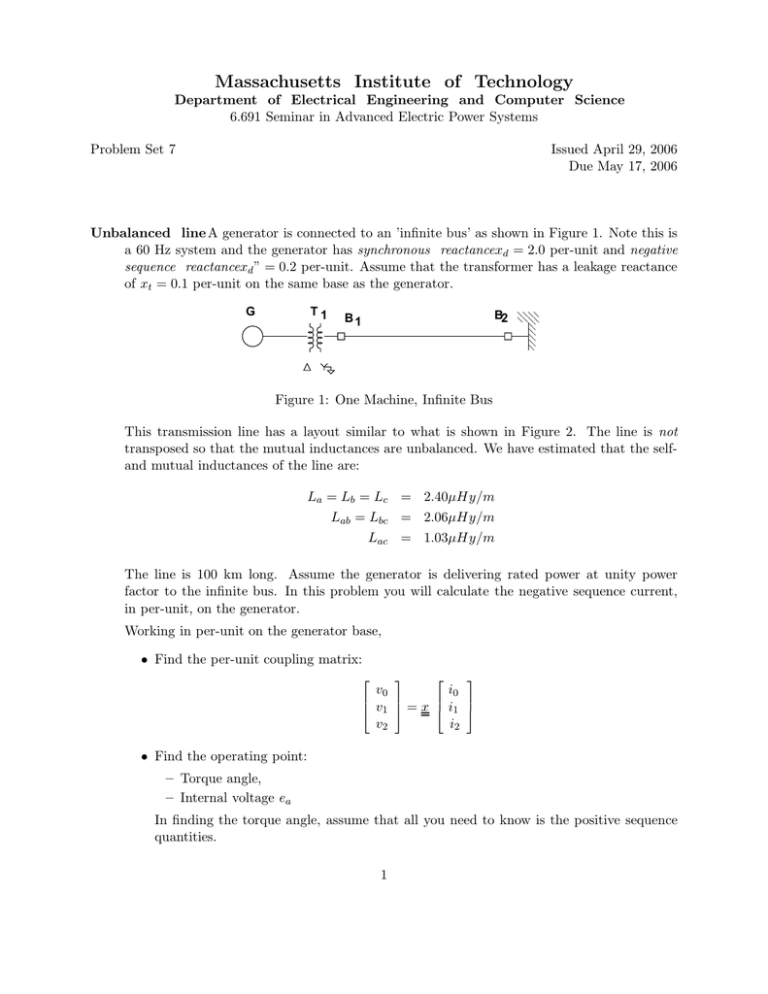
Massachusetts Institute of Technology Department of Electrical Engineering and Computer Science 6.691 Seminar in Advanced Electric Power Systems Problem Set 7 Issued April 29, 2006 Due May 17, 2006 Unbalanced line A generator is connected to an ’infinite bus’ as shown in Figure 1. Note this is a 60 Hz system and the generator has synchronous reactancexd = 2.0 per-unit and negative sequence reactancexd ” = 0.2 per-unit. Assume that the transformer has a leakage reactance of xt = 0.1 per-unit on the same base as the generator. G T1 B2 B1 00 11 11 00 11 00 00 11 Figure 1: One Machine, Infinite Bus This transmission line has a layout similar to what is shown in Figure 2. The line is not transposed so that the mutual inductances are unbalanced. We have estimated that the selfand mutual inductances of the line are: La = Lb = Lc = 2.40µHy/m Lab = Lbc = 2.06µHy/m Lac = 1.03µHy/m The line is 100 km long. Assume the generator is delivering rated power at unity power factor to the infinite bus. In this problem you will calculate the negative sequence current, in per-unit, on the generator. Working in per-unit on the generator base, • Find the per-unit coupling matrix: ⎡ ⎤ ⎡ ⎤ i0 v0 ⎢ ⎥ ⎢ ⎥ ⎣ v1 ⎦ = x ⎣ i1 ⎦ i2 v2 • Find the operating point: – Torque angle, – Internal voltage ea In finding the torque angle, assume that all you need to know is the positive sequence quantities. 1 A B C Figure 2: Transmission Line Configuration • Calculate the vector difference between internal and infinite bus voltages. • Now you should be able to calculate negative sequence current in the machine. • Is there zero sequence current anywhere? Where and what is it (in per-unit)? 2
